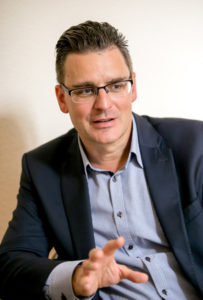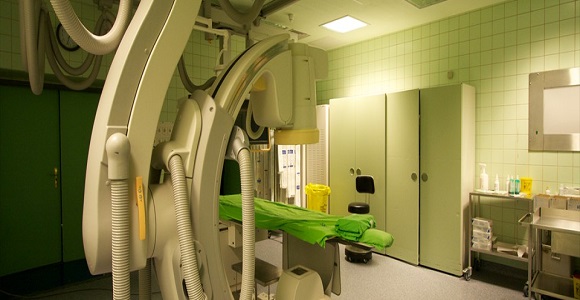Dear Reader!
Dear Patient!
The Department of Surgery, Transplantation and Gastroenterology at Semmelweis University was established on October 1, 2021 by merging the three previously independent clinics of our University.
The basic organizational unit was called the “Number One” at the time of its establishment, and later it was named the 1st Clinic of Surgery. The Institute was founded by our predecessors in 1909, and then expanded with a gastroenterological profile for almost a year (September 1, 2020 to September 31, 2021). It operated as the Department of Surgery and Interventional Gastroenterology.
Based on the decision of the University Senate of June 30, 2021, the first integrated organizational unit is the II. It was the Surgery Clinic. This institute was established in 1997 from the merger of the Department of Surgery at St. John’s Hospital and the Department of Surgery of the Teaching Hospital and thus moved to the Kútvölgy Clinical Block IV. to the first floor of the Semmelweis University Central Patient Building continued on the first floor until the above decision.
The further expansion was the accession of the Clinic of Transplantation and Surgery, which was established in 1994 and then in September 2021. He worked under that name until 30, during the reign of five former heads of department.

With the integration of the above-mentioned healing institutions, a unique surgical-gastroenterological complex was created in Hungary, providing a wide range of services. It is a place where surgery can be practiced at an artistic level. The specialties of complementary co-professions strengthened, and the concentration of intellectual capital in a diverse, clinical environment that has created a new ‘brand’ that is more than a ‘center of excellence’. All three places were once classical surgery schools and creative workshops, and their current unified form allows them to be a place for elite training.
We hope that with our expertise we can help you recover as soon as possible. Thank you for your trust in our institution!
Presentation of the “Üllői úti” Clinic of the Department of Surgery, Transplantation and Gastroenterology (formerly the 1st Department of Surgery and Interventional Gastroenterology)
For more than 100 years, the “Üllői út Surgery Clinic” has been the leading surgical institute in Hungary with the oldest traditions. Iconic place, unique patient care, educator and researcher, “creative workshop”. The 1st Clinic of Surgery was the unavoidable base for the development of Hungarian surgery in the most exciting hundred years of medicine. To this day, it continues to play this role, expanding with a modern gastroenterology department. The Clinic, which has been operating since 1909 and housed the most modern surgical institute in Europe at the time, was home to surgeons from Happy Peace. These walls may have witnessed revolutionary innovations. The house was and still is characterized by spirituality, the love of the profession, the artistic cultivation of surgery, and the emerging traditions.
At our clinic, the disciplines of surgery, anesthesiology and intensive care, and from September 2020, gastroenterology will be located under one roof. In the surgical and anesthesiology departments of the Clinic, a total of 101 surgical and 9 intensive care units cover the full spectrum of general and gastrointestinal surgery on liver and bile duct, pancreas, upper gastrointestinal and coloproctology, and breast and endocrine surgery profiles.
The Institute provides acute surgical care in accordance with the territorial classification, and provides nationwide admission for the highest level III / B patients requiring progressive care.
In September 2020, our clinic was expanded with a 30-bed gastroenterology inpatient ward and an interventional gastroenterology center. We provide a high level of care for patients with liver and bile duct diseases, inflammatory bowel disease (IBD) and upper and lower gastrointestinal tract, and provide gastrointestinal bleeding. There is also a home artificial (parenteral) feeding center in the institution. Our hepatology care center is one of the major pillars of our liver surgery care. Thus, gastroenterology and surgery provide the highest level of care for patients in a comprehensive manner, unique in Hungary, within the framework of an organizational unit.
The annual number of surgeries is around 3,500-4,000, the vast majority of which allow the treatment of conditions that require oncology surgery or the most progressive care. More than 50,000 patients visit outpatient clinics each year. Of course, the use of one-day surgical or advanced laparoscopic methods is also present, thus enabling a faster healing process in diseases that previously required longer hospital care. The clinic provides priority care nationwide for the treatment of complicated surgical cases, hepato-pancreatic-biliary diseases, gastroenterological oncology, and endocrine surgery. Patients in these profiles are treated by teams led by internationally renowned experts. In order to expand our liver, pancreas and bile duct surgery work, I and my colleagues established a professional network called the HPB Surgical Research Center.
The complex unit offers a range of advanced gastroenterological diagnostic and therapeutic options: upper and lower gastrointestinal endoscopy, endoscopic ultrasound, and endoscopic retrograde cholangiopancreatography (ERCP). In addition, the completeness of daily care is ensured by conventional, interventional and intraoperative ultrasound examinations, computed tomography (CT), angiography, isotope diagnostics, interventional radiology, as well as laparoscopic surgical techniques and new hemostatic procedures.
Presentation of the “Baross Street” Clinic of the Department of Surgery, Transplantation and Gastroenterology (formerly the Department of Transplantation and Surgery)
A Klinika az Európai Sebésztársaság (European Board of Surgery) Transzplantációs Szekciója (UEMS-EBS, Section of Transplantation Surgery) és az Eurotransplant által nemzetközileg akkreditált európai transzplantációs sebészeti kiképző központ.
Tevékenységünk speciális területe a szervátültetés (vese, máj, kombinált vese- hasnyálmirigy, valamint hasnyálmirigy szigetsejt) és ezekkel kapcsolatos határterületek. 2014-ben az Eurotransplant nyolc európai tagországának transzplantációs centrumait összehasonlító adatai alapján a Transzplantációs és Sebészeti Klinikán végezték el a legtöbb veseátültetést, a májátültetések között pedig az ötödik helyet értük el, ezzel elmondhatjuk, hogy Klinikánk az élvonalba tartozik a hasi szervek transzplantációja területén
Our clinic has specially trained colleagues available for patients. We provide all areas of general abdominal surgery, with a special focus on the treatment and aftercare of cancer patients, and the surgical treatment of diseases of the endocrine glands (adrenal gland, thyroid gland, parathyroid gland). On several organs, surgeries are performed with minimally invasive (laparoscopic) methods (gallbladder, adrenal gland, kidney, liver, pancreas, gastrointestinal tract, etc.). We have the largest number of living donor kidney transplants nationwide, whose donor surgery and kidney removal are also performed laparoscopically. We are planning a continuous expansion of the profile in the area facing these great opportunities. At our clinic we undertake the surgical correction and treatment of complicated bile duct diseases and liver tumors.
In our intensive care unit, under the auspices of the Department of Anaesthesiology and Intensive Care, Semmelweis University, patients receiving transplantation or general surgery and requiring intensive care unit observation or treatment are treated using state-of-the-art methods.
Our qualified staff takes care of the patients after the organ transplant, examines and treats kidney and liver patients in internal medicine, including the examination of living donors.
At our outpatient clinic, in addition to special clinics, it is possible to perform endoscopic, ultrasound, angiographic and computed tomography (CT) examinations, as well as dietetic, physiotherapy and stomatotherapy consultations in cooperation with the Medical Imaging Clinic. At our diagnostic department, we routinely perform needle biopsies and ultrasound-guided procedures.
The outpatient operating room is suitable for small surgeries, diagnostic test excisions, and for the formation of arteriovenous vascular connections necessary for the treatment of the artist.
Since October 2015, the clinic’s transplant and surgical activities have been accredited by ISO 9001 Quality Assurance.
Education at the Clinic of Surgery, Transplantation and Gastroenterology
Our university can be justifiably proud of this Clinic, considering its outstanding achievements, school-creating past and present. In addition to the most up-to-date procedures, moments of historical turning point (eg the first liver transplant in Hungary, the launch of the first kidney transplant program, the launch of the famous European pancreas surgery, and the establishment of a unified endocrine surgery, etc.), scientific life – and thus surgery The Clinic has become an integral part of its development.
 |
 |
A serious school has been established in both Baross Street and Üllői út, and this will only be strengthened by standardizing the approach. We have a very important role to play in the elite training of surgeons, in the volume and how unified approach we can teach the now growing generation of surgeons. At the level of our educational tasks I., IV. and VI. Theoretical and practical training of medical students in Hungarian, German and English is also provided. In addition to the students of the Faculty of General Medicine, the students of the Faculty of Dentistry and the Faculty of Health Sciences also get acquainted with the basics of surgery.
Within the framework of scientific student work, 10-15 students annually engage in scientific activities in experimental and clinical surgery, surgical pathology, anesthesiology and gastroenterology. Our doctoral training (PhD) with a surgical orientation is also outstanding in the national context.
Further training for professional exam preparation, organized and individual postgraduate training is extensive in our professional profiles. The clinic is a practice-training institution for nurses, operating room and anesthesiologists.
Based on the above, we hope that in the future the “new” Clinic of Surgery, Transplantation and Gastroenterology will be worthy of the thoughts of János Balassa, the greatest Hungarian surgeon and former legendary professor of our department:
“Surgery and internal medicine are on the same scientific basis. Let surgery not be a craft based on foreign forms alone, but a science that invents the whole in some parts.”

